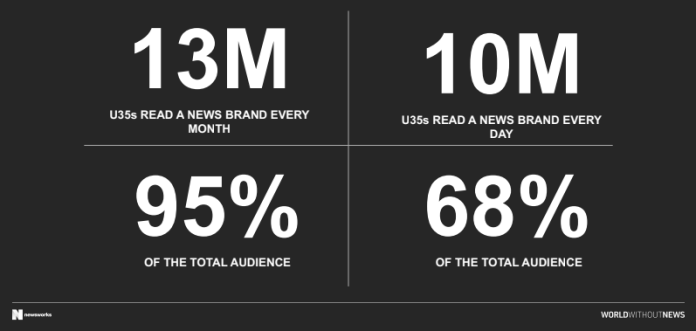
Since the beginning of the pandemic, 77% of people under 35 years of age have become more aware of the importance of journalism. As well, 68% feel that a world without journalism would have a negative impact on democracy. UK-based media company, Mediatel, held a Future of Media event on November 25, 2020 and Newsworks’ Insight Director Denise Turner spoke at the event, sharing some relevant data on media consumption among under 35-year-olds.
“When it comes to the news consumption of under 35-year-olds, it is clear from our research that the pandemic has brought into focus the need for trusted sources of information. Our findings really do highlight the power of trust in its ability to influence behaviour, something that is crucial for advertisers looking to engage with a younger target audience,” Turner commented. In continuation, news brands are shown to be the number one source of news content on social media (70%) and due to the rise of fake news as a result of COVID-19, many respondents have been turning to newspapers as a trusted source.
In a Canadian context, Totum Research conducted research as part of the SPOT Fake News Online project, and found that 80% of Canadians between 18-34 felt that reliable journalism is an essential part of a democratic society. Similarly, data shows that 31% of under 35s completely or somewhat trust advertising in printed newspapers and 31% trust advertising in newspaper websites, compared to just 17% trusting ads on social networks. The key takeaway is that newspapers are an excellent advertising platform for people under 35. When it comes to COVID-19, research finds that 42% of Canadians aged 18-34 believe that newspapers have trustworthy information about the COVID-19 pandemic.
Advertisers should take note of this because time and time again, research shows that newspapers provide a trusted environment for ads. Newsworks also claims that when people under 35 read news brands, they are four times more likely to say that it made them change their behaviour, in comparison to older age groups.












